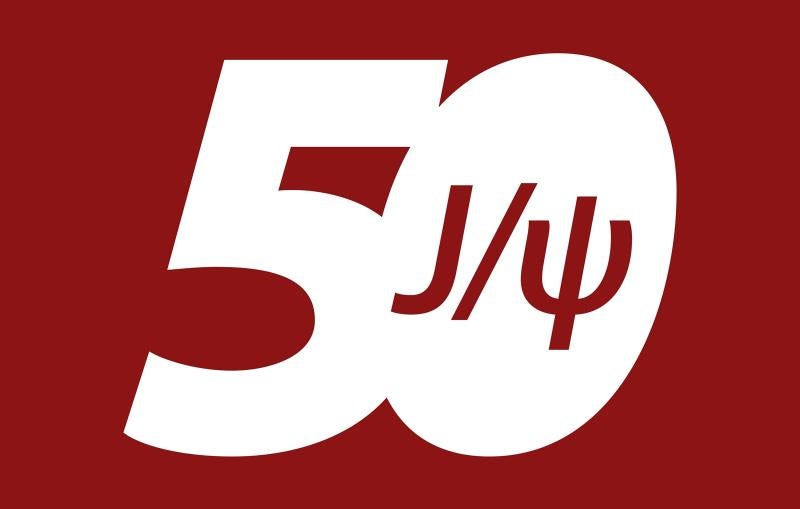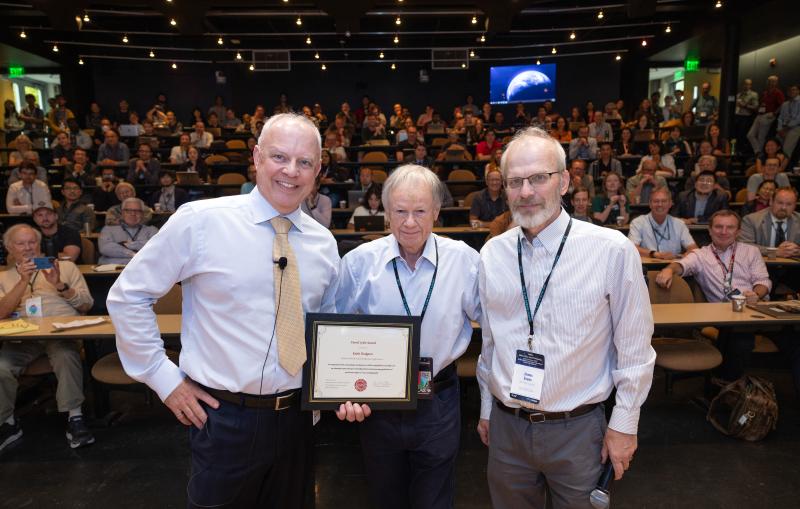Harker School Wins Second Consecutive SLAC Regional DOE Science Bowl
Two dozen teams competed for a chance to go to the Nationals, and 60 trained volunteers worked to make the regional contest happen.
By Michael Ross
Twenty-four teams from 16 Bay Area high schools faced off Feb. 3 in the SLAC Regional DOE Science Bowl, a series of fast-paced question-and-answer matches that test knowledge in biology, chemistry, physics, earth and space sciences, energy and math. The competition is hosted annually by the Department of Energy’s SLAC National Accelerator Laboratory.
The winner, Harker School of San Jose, will go on to compete in the 2018 National Science Bowl® competition in Washington, D.C., in April.

It was the second consecutive win for Harker, which trounced its perennial rival, Lynbrook High School in San Jose, 108-58 in the final round of the regional contest. Each of the two high schools has beaten the other twice for the win during the past four years.
“Last year we were happy to make Nationals,” said Shaya Zarkesh, a Harker senior. “This year we have higher hopes.”
“We intend to win,” teammate and fellow senior Swapnil Garg added emphatically.
Everyone on this year’s Harker team will have Washington experience. Only one senior graduated from last year’s squad, and he’s been replaced by Emily Liu, who was on the Joaquin Miller Middle School team that won the National Middle School Science Bowl in 2016.
Thousands Compete Nationwide
Twenty-four teams from 16 Bay Area high schools faced off Feb. 3 in the SLAC Regional DOE Science Bowl. (Dawn Harmer/SLAC National Accelerator Laboratory)
The Department of Energy created the National Science Bowl in 1991 to encourage student involvement in math and science activities important to DOE and the nation. This year, more than 9,000 high school students and 4,500 middle school students will compete in 65 high school and 50 middle school regional Science Bowl tournaments. SLAC hosted its first regional in 2005.
The SLAC Regional was coordinated by SLAC Outreach and Events Manager Rachel Isip and Ray Ng, who has helped organize local Science Bowl competitions since 1992, when he was education outreach coordinator at Sandia National Laboratories’ California campus in Livermore. They recruited and trained more than 60 volunteers who served as match moderators, scorekeepers, timekeepers and science judges. Many are SLAC employees or Stanford students who had competed in Science Bowls when they were in high school.
In the 16-minute competition rounds, moderators read tossup questions to be answered by the contestant who buzzes in first, as well as bonus questions where the four-person teams collaborate on an answer.
Questions on Saturday covered an extremely wide range of detailed scientific information, including nuclear physics, trigonometric calculations, genetics and DOE national laboratory research programs. DOE provides nine complete sets of practice questions that teams can use to prepare.
Student-Created Practice App
New this year is a free app, created last summer by Stanford Online High School senior Jake Polatty, that allows students to review the practice questions by subject or in random quiz-style modes. SOHS students live all over the country and communicate over the internet with teachers and teammates. During a team discussion last year, coach Alex McKale mentioned the potential value of an online study tool. Polatty, who lives in Rhode Island, immediately took up the challenge and had the first version ready in three months. It will soon be available for both Android and iOS devices. Polatty said the app has been downloaded 3,200 times by people in 28 countries on six continents.
The app helped Stanford Online and San Francisco’s Proof School students achieve their best results ever. Stanford Online’s team won its round-robin group on Saturday. Only three years in existence, the Proof School’s team also qualified for the afternoon competition.
Senior Freya Edholm has led Proof’s ascent from zero wins in 2015 to this year’s second-place finish in its round-robin group.
“Although I’d done many math competitions before, I thought I didn’t know any science,” she said. “Science Bowl has exposed me to so much interesting science that I now plan to major in chemical engineering.”
For questions or comments, contact the SLAC Office of Communications at communications@slac.stanford.edu.
SLAC is a multi-program laboratory exploring frontier questions in photon science, astrophysics, particle physics and accelerator research. Located in Menlo Park, Calif., SLAC is operated by Stanford University for the U.S. Department of Energy's Office of Science.
SLAC National Accelerator Laboratory is supported by the Office of Science of the U.S. Department of Energy. The Office of Science is the single largest supporter of basic research in the physical sciences in the United States, and is working to address some of the most pressing challenges of our time. For more information, please visit science.energy.gov.






